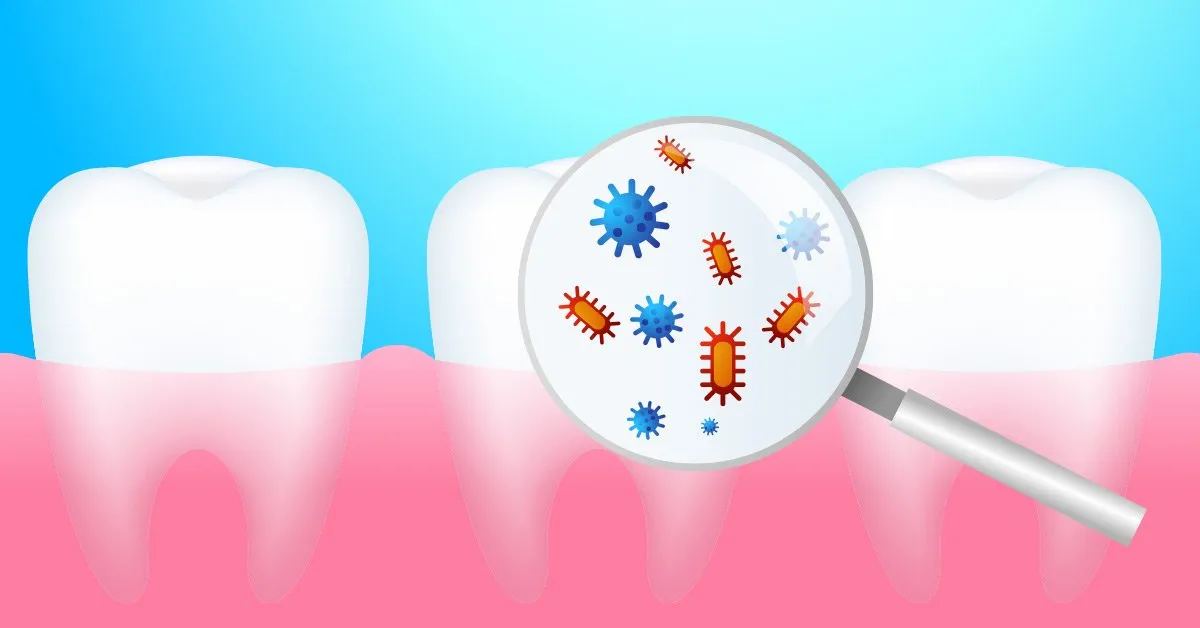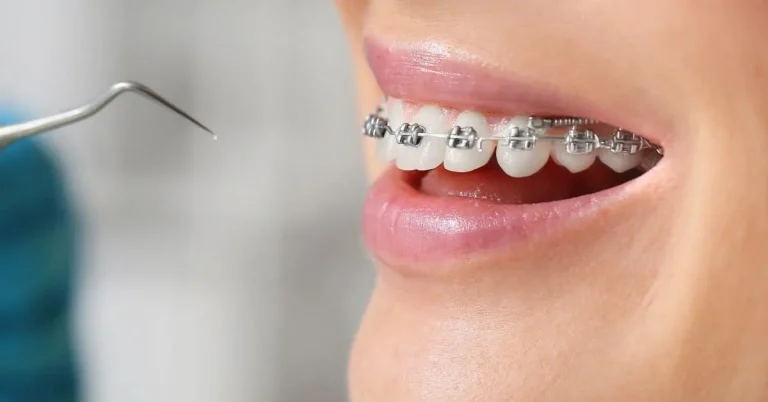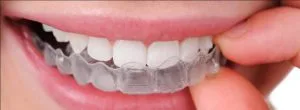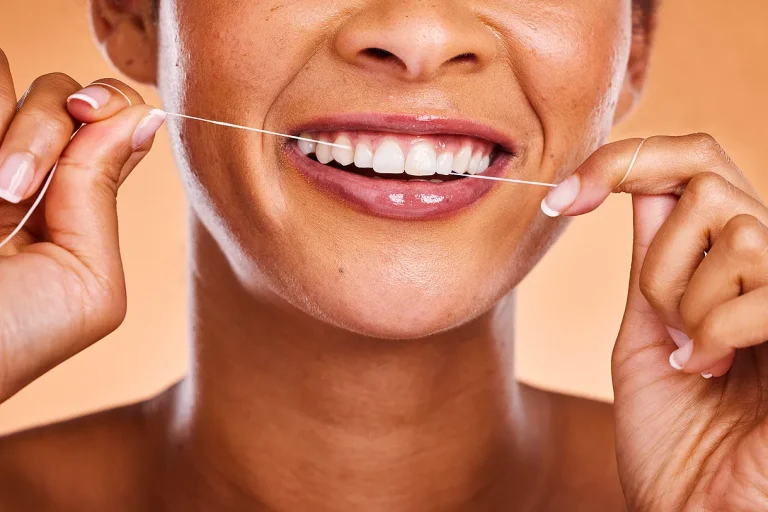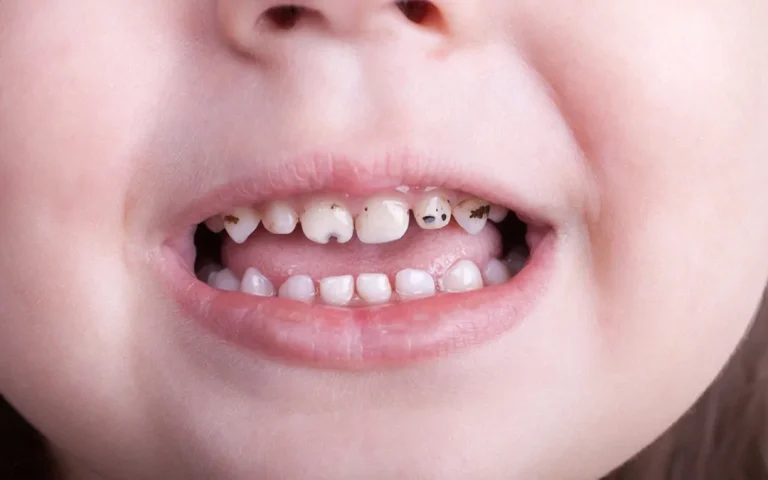Bacteremia After Brushing: What Does It Mean for Your Health?
You know that fresh, minty feeling after brushing your teeth? It’s like a mini victory for your oral hygiene. But here’s something you might not know: while you’re scrubbing away plaque and saying goodbye to morning breath, a tiny, temporary phenomenon called bacteremia could be happening. Sounds a little sci-fi, right? Don’t worry—it’s not as scary as it sounds, but it’s definitely worth understanding, especially if you’re someone who takes their health seriously.
So, what exactly is bacteremia, and why does it happen after something as routine as brushing your teeth? In simple terms, bacteremia is when bacteria enter your bloodstream. And yes, even something as harmless as brushing can cause it. For most of us, this is no big deal—our immune systems handle it like pros. But for others, especially those with certain health conditions, it’s a reminder of how interconnected our oral health and overall health really are.
Curious to learn more? Let’s dive into what bacteremia means for your health, why it happens, and how you can keep your smile—and your body—in tip-top shape. After all, knowledge is power, especially when it comes to your well-being. Ready to get the scoop? Let’s go!
What Is Bacteremia, and Why Does It Happen After Brushing?
Let’s break it down: bacteremia is just a fancy way of saying that bacteria have entered your bloodstream. It’s not as dramatic as it sounds—think of it like a few uninvited guests sneaking into a party. Most of the time, your body’s bouncer (aka your immune system) kicks them out before they can cause any trouble.
But how does this even happen during something as simple as brushing your teeth? Well, your mouth is home to millions of bacteria—some good, some not-so-good. When you brush or floss, especially if you’re a little too enthusiastic with your technique, you can create tiny openings in your gum tissue. These micro-abrasions act like a backdoor for bacteria to slip into your bloodstream.
Here’s the kicker: this isn’t just a brushing thing. Flossing, chewing, or even biting into a crunchy apple can cause it too. For most people, this is a non-issue. Your immune system swoops in, handles the situation, and life goes on. But for others, particularly those with weakened immune systems or certain health conditions, it’s a different story.
Think of it like this: your gums are the gatekeepers of your mouth. Most of the time, they do a great job keeping things in check. But every now and then, a few bacteria slip through the cracks. It’s a reminder that even the most routine habits can have unexpected effects on your body.
So, should you stop brushing your teeth? Absolutely not! Good oral hygiene is still your best defense against gum disease and other dental issues. The key is to brush smart—gentle but thorough—and keep up with regular dental check-ups. After all, a healthy mouth is a happy mouth, and your bloodstream will thank you for it.
The Short-Term Effects of Bacteremia: Should You Be Worried?
Okay, so bacteria are sneaking into your bloodstream after brushing—sounds a little alarming, right? But before you start side-eyeing your toothbrush, let’s talk about what actually happens next. For most people, the effects of bacteremia are so minor that you’d never even notice. Your immune system is like a well-trained security team, ready to tackle any intruders before they can cause trouble.
Here’s how it usually plays out: when bacteria enter your bloodstream, your immune system kicks into gear. White blood cells swarm the area, neutralizing the bacteria and preventing them from spreading. It’s a quick, efficient process that happens behind the scenes, leaving you none the wiser.
But what about those times when you do notice something? Maybe you feel a little off after a dental cleaning or notice a slight fever. While these symptoms can be linked to bacteremia, they’re usually mild and short-lived. Your body’s got this under control.
That said, there are exceptions. For some people, particularly those with weakened immune systems or certain health conditions like heart valve issues, bacteremia can pose a bigger risk. In rare cases, it can lead to more serious complications like infections in other parts of the body.
So, should you be worried? If you’re generally healthy, probably not. But it’s always a good idea to be aware of your body and how it responds to things like dental procedures or even daily habits. If you ever feel unusually unwell after brushing or a dental visit, don’t hesitate to reach out to your healthcare provider. Better safe than sorry, right?
The bottom line? Bacteremia after brushing is usually no big deal, but it’s a fascinating reminder of how connected your oral health is to your overall well-being. Keep brushing, keep flossing, and keep an eye on how your body feels. Your immune system is doing most of the heavy lifting, but a little awareness goes a long way.
The Link Between Poor Oral Health and Weakened Immune Responses
Let’s get real for a second: your mouth is like the front door to your body. If it’s not in great shape, it can leave the rest of your health vulnerable. That’s where the connection between poor oral health and weakened immune responses comes into play. When your gums are inflamed or you’re dealing with chronic issues like gum disease, your immune system has to work overtime to keep up.
Think of it like this: your immune system is a firefighter. When your mouth is healthy, it’s like a quiet day at the station—maybe a small fire here and there, but nothing major. But if you’ve got gum disease or poor oral hygiene, it’s like the alarm is constantly going off. Your immune system is running around putting out fires left and right, and over time, that can wear it down.
This is where bacteremia becomes a bigger deal. When your gums are already inflamed or infected, brushing or flossing can introduce even more bacteria into your bloodstream. And if your immune system is already stretched thin, it might not be able to handle the extra workload as effectively.
For example, let’s say you’ve been skipping flossing for a while (no judgment—we’ve all been there). Plaque builds up, your gums get irritated, and boom—you’ve got gingivitis. Now, every time you brush, you’re not just cleaning your teeth; you’re also sending more bacteria into your bloodstream. Over time, this can lead to a cycle of inflammation and immune strain that’s tough to break.
The good news? You can turn things around. Regular brushing, flossing, and dental check-ups can help keep your gums healthy and your immune system strong. It’s like giving your body’s firefighter a well-deserved break.
So, what’s the takeaway here? Your oral health isn’t just about avoiding cavities or bad breath—it’s a key player in your overall health. By taking care of your mouth, you’re giving your immune system a fighting chance to do its job effectively. And trust me, your body will thank you for it.
Mitigating Risks: How to Protect Yourself During Dental Hygiene Practices
Now that we’ve talked about the what and why of bacteremia, let’s get into the how—how you can protect yourself and keep your oral hygiene routine both effective and safe. The good news? It’s not rocket science. With a few simple tweaks, you can minimize the risks and keep your mouth (and bloodstream) in great shape.
Here are some practical tips to keep in mind:
Choose the Right Tools
- Opt for a soft-bristled toothbrush. It’s gentle on your gums but still tough on plaque.
- Consider an electric toothbrush, which can help you maintain consistent pressure and avoid over-brushing.
Brush Smart, Not Hard
- Use gentle, circular motions instead of scrubbing back and forth like you’re sanding a piece of wood.
- Aim for two minutes of brushing, twice a day—no need to go overboard.
Don’t Skip the Floss
- Flossing removes plaque and bacteria from between your teeth and along the gumline, where your toothbrush can’t reach.
- If traditional floss is tricky, try floss picks or a water flosser for an easier option.
Rinse with Care
- Use an antibacterial mouthwash to reduce bacteria in your mouth, but don’t rely on it as a substitute for brushing and flossing.
- Avoid alcohol-based mouthwashes if you have sensitive gums.
Stay on Top of Dental Visits
- Regular check-ups and cleanings are your best defense against gum disease and other oral health issues.
- If you have a health condition that increases your risk of complications from bacteremia, let your dentist know. They can take extra precautions during cleanings or procedures.
Listen to Your Body
- If your gums bleed frequently or feel tender, it’s a sign that something’s off. Don’t ignore it—schedule a visit with your dentist to get to the root of the problem.
By following these steps, you’re not just protecting yourself from bacteremia; you’re also setting the stage for a healthier mouth and a stronger immune system. It’s all about balance—keeping your teeth clean without going overboard and causing unnecessary stress to your gums.
Remember, your oral health is a team effort. You, your toothbrush, and your dentist are all working together to keep your smile bright and your body healthy. So, keep up the good work, and don’t forget to give your gums a little TLC along the way!
When to Seek Help: Recognizing Signs of Complications
While bacteremia after brushing is usually no big deal, there are times when it’s worth paying closer attention. Most of us will never experience any issues, but for some, especially those with certain health conditions, it’s important to know when to seek help. After all, your body has a way of sending signals when something’s not quite right—you just have to know what to look for.
Here are some signs that could indicate a more serious problem:
- Fever or Chills: If you notice a sudden fever or feel unusually cold, it could be a sign that your body is fighting an infection.
- Fatigue: Feeling more tired than usual, even after a good night’s sleep, might mean your immune system is working overtime.
- Swelling or Redness: If you see swelling, redness, or tenderness around your gums or other parts of your body, it’s worth getting checked out.
- Rapid Heartbeat or Shortness of Breath: These symptoms could indicate a more serious infection, especially if you have a history of heart problems.
- Persistent Pain: If you have ongoing pain in your mouth, jaw, or elsewhere, don’t ignore it—it could be a sign of something deeper going on.
Now, let’s be clear: these symptoms don’t automatically mean you have a serious issue. But they’re worth paying attention to, especially if they stick around or get worse over time. If you’ve recently had a dental procedure or noticed changes in your oral health, it’s always better to err on the side of caution.
For example, let’s say you had a deep cleaning at the dentist and a few days later, you start feeling run-down and achy. It might just be your body recovering, but it could also be a sign that something’s up. In that case, a quick call to your dentist or doctor can give you peace of mind—or catch a potential problem early.
The key takeaway? Don’t brush off unusual symptoms (pun intended). Your body is pretty good at telling you when something’s wrong, so listen to it. And if you’re ever in doubt, reach out to a healthcare professional. After all, when it comes to your health, it’s always better to be safe than sorry.
So, keep an eye on how you’re feeling, and don’t hesitate to seek help if something seems off. Your health is worth it!
Conclusion
Bacteremia after brushing might sound like a mouthful (literally), but it’s usually nothing to lose sleep over. For most of us, it’s just a temporary blip that our immune systems handle with ease. But for others, especially those with certain health conditions, it’s a reminder of how closely linked our oral health and overall well-being really are.
The good news? You’re not powerless. By maintaining good oral hygiene, using the right tools, and staying on top of your dental visits, you can keep your mouth—and your body—in great shape. And if you ever notice something unusual, don’t hesitate to reach out to your dentist or doctor.
So, what’s the bottom line? Keep brushing, keep flossing, and keep smiling. Your oral health is a big part of your overall health, and taking care of it is one of the best things you can do for yourself. Ready to take the next step? Schedule a check-up with your dentist today and give your smile the care it deserves. After all, a healthy mouth is a happy mouth—and your body will thank you for it!
FAQs
What is bacteremia?
Bacteremia is the presence of bacteria in the bloodstream.
How can brushing cause bacteremia?
Brushing, especially if gums are inflamed or bleeding, can introduce bacteria from the mouth into the bloodstream.
Is bacteremia from brushing common?
Yes, it’s relatively common, especially after vigorous brushing or flossing.
Is bacteremia from brushing dangerous for everyone?
No, in most healthy individuals, the immune system clears the bacteria quickly without any issues.
Who is at higher risk from bacteremia after brushing?
People with compromised immune systems, artificial heart valves, certain heart conditions, or those who’ve had joint replacements are at higher risk.
What are the symptoms of a serious bacteremia infection?
Symptoms can include fever, chills, fatigue, rapid heart rate, and confusion. If you experience these, seek medical attention.
How long does bacteremia from brushing typically last?
In healthy individuals, it’s usually transient, lasting only a short period (minutes to hours) as the immune system eliminates the bacteria.
Can antiseptic mouthwash prevent bacteremia from brushing?
While it might reduce the bacterial load in the mouth, it may not completely prevent bacteremia and the linked article suggests it might do more harm than good. Consult your dentist for personalized advice.
What can I do to minimize the risk of bacteremia from brushing?
Maintain good oral hygiene, brush gently, use a soft-bristled toothbrush, and address any gum disease.
When should I be concerned about bacteremia after brushing?
If you are in a high-risk category or experience symptoms of infection after dental procedures or brushing, consult your doctor or dentist promptly.

